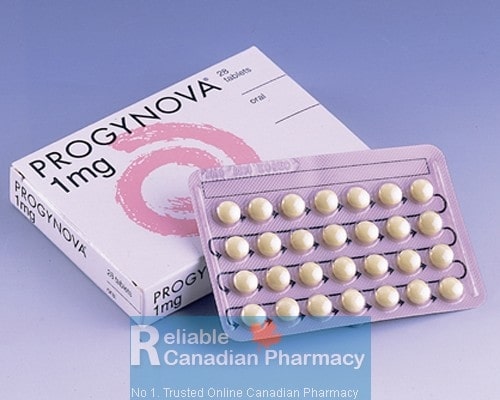Kliogest (estradiol) is a form of estrogen, a female sex hormone produced by the ovaries. Estrogen is necessary for many processes in the body. Kliogest is used to treat symptoms of menopause such as hot flashes, and vaginal dryness, burning, and irritation. Other uses include prevention of osteoporosis in postmenopausal women, and replacement of estrogen in women with ovarian failure or other conditions that cause a lack of natural estrogen in the body. Kliogest is sometimes used as part of cancer treatment in women and men. Kliogest may also be used for other purposes not listed in this medication guide.
The health and medical information provided here is for general purposes only and is not a substitute for the expertise and judgment of your physician, or other health care professional. It should not be understood to indicate that the use of this medicine is safe, appropriate or effective for you. Always consult your health care professional before using this, or any other, drug.
Kliogest can harm an unborn baby or cause birth defects. Do not use Kliogest if you are pregnant. You should not take Kliogest if you have abnormal vaginal bleeding, liver disease, breast or uterine cancer, hormone-dependent cancer, a recent history of heart attack or stroke, if you are pregnant, if you have ever had a blood clot (especially in your lung or your lower body), or if you are allergic to any medicines or food dyes. Taking hormones can increase your risk of blood clots, stroke, or heart attack, especially if you have diabetes, high blood pressure, high cholesterol or triglycerides, if you smoke, or if you are overweight.
Long-term Kliogest treatment may increase your risk of breast cancer, ovarian cancer, or uterine cancer. Talk with your doctor about your individual risks before using Kliogest long-term. Your doctor should check your progress every 3 to 6 months to determine whether you should continue this treatment.
Taking progestin while using Kliogest may lower your risk of uterine cancer. If your uterus has not been removed, your doctor may prescribe a progestin for you to take while you are using Kliogest.
Kliogest should not be used to prevent heart disease, stroke, or dementia, because this medication may actually increase your risk of developing these conditions.
Have regular physical exams and mammograms, and self-examine your breasts for lumps on a monthly basis while using Kliogest.
Get emergency medical help if you have any of these signs of an allergic reaction to Kliogest: hives; difficulty breathing; swelling of your face, lips, tongue, or throat. Stop using Kliogest and call your doctor at once if you have a serious side effect such as:
unusual vaginal bleeding (especially if you are past menopause);
chest pain or heavy feeling, pain spreading to the arm or shoulder, nausea, sweating, general ill feeling;
sudden numbness or weakness, especially on one side of the body;
sudden severe headache, confusion, problems with vision, speech, or balance;
stabbing chest pain, sudden cough, wheezing, rapid breathing, fast heart rate;
pain, swelling, warmth, or redness in one or both legs;
nausea, vomiting, loss of appetite, increased thirst, muscle weakness, confusion, and feeling tired or restless;
a lump in your breast;
feeling like you might pass out;
pain, swelling, or tenderness in your stomach; or
jaundice (yellowing of the skin or eyes).
Less serious Kliogest side effects may include:
mild nausea, vomiting, bloating, stomach cramps;
breast pain, tenderness, or swelling;
freckles or darkening of facial skin;
loss of scalp hair;
vaginal itching or discharge; or
changes in your menstrual periods, break-through bleeding.
Take Kliogest exactly as it was prescribed for you. Do not use the medication in larger amounts, or use it for longer than recommended by your doctor.
Long-term Kliogest treatment may increase your risk of breast cancer, ovarian cancer, or uterine cancer. Talk with your doctor about your individual risks before using Kliogest long-term.
Taking progestin while using Kliogest may lower your risk of uterine cancer. If your uterus has not been removed, your doctor may prescribe a progestin for you to take while you are using Kliogest.
Have regular physical exams and mammograms, and self-examine your breasts for lumps on a monthly basis while using Kliogest. Your doctor should check your progress every 3 to 6 months to determine whether you should continue this treatment.
If you need medical tests or surgery, or if you will be on bed rest, you may need to stop using this medication for a short time. Any doctor or surgeon who treats you should know that you are taking Kliogest.
Store Kliogest at room temperature away from moisture, heat, and light.







